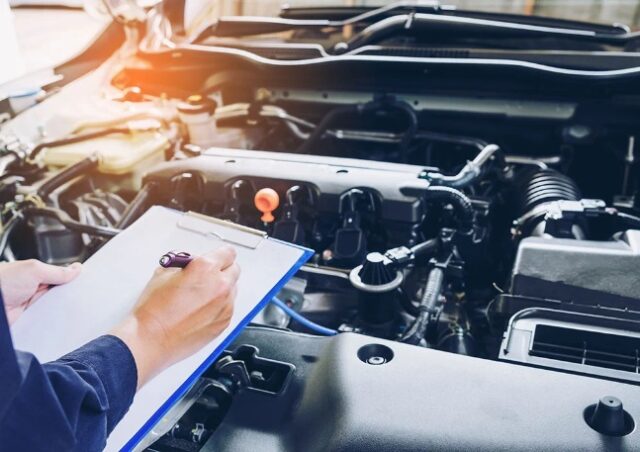#AD. In the interest of disclosure and transparency, the syndication of this article has been provided and paid for by FBD Insurance.
Most of us aren’t using our cars as much as normal these days, but hopefully it won’t be long before we’re back behind the wheel, navigating the picturesque roads of Ireland again.
While we’re spending more time at home, it’s a good idea to carry out some basic maintenance tasks, give it a deep clean, and pack the boot with new necessities.
That way, it’ll be ready for those happy days ahead when we can go back to taking trips to the seaside, scenic mountain drives or even just popping to the next town over to see friends and family.
Top tips for keeping your car ticking over while you stay home and stay safe
Start the engine regularly
While their owners do the right thing and stay at home, our cars might be suffering a little from lack of use. It’s not good for a vehicle to be parked up for too long, as the battery can drain, the brakes could seize and the tyres might develop flat spots.
The best way to keep a car healthy is to drive it, but for many people that’s not possible during the current restrictions.
Unless you’re driving for one of the permitted reasons, even just starting the engine in the driveway is better than nothing.
If you can do so safely, legally and comfortably, take your car for a proper spin, ideally for half an hour or more, to warm up the engine, recharge the battery and get everything running smoothly again.
Give it a deep clean
While no amount of cleaning and sanitising will ever render your car germ-free, there are best practices that can help to protect you and your family.
With that in mind, it might be a good idea to start a regular car cleaning regime, with a few simple steps to help you reduce your risk.
It’s a good idea to look up the car’s manual before starting, to make sure you don’t use any cleaning material that might damage the different surfaces, which could include leather, plastic or suede.
Then, make sure to wash your hands first and wear gloves while cleaning, disposing of them as soon as you’re finished.
Disinfectant wipes are a good choice for car interiors, as they don’t contain too much moisture, which might damage electrical components. Concentrate on the most-used sections first, such as the steering wheel and gear stick, but don’t forget the smaller items, such as radio buttons, air conditioning switches or the multimedia touchscreen.
As we all know, children’s seats and toys can get particularly dirty – with yoghurt, melted chocolate and biscuit crumbs – so spend a bit of time making sure their areas are deep cleaned, particularly the seat belts.
Bin all wipes and sponges as soon as you’re finished, and roll down the windows for a little while to allow any lingering fumes to escape. Just don’t forget to put them back up before the rain starts!
Park Wisely
Most us don’t get too much choice when it comes to parking – our driveways tend to run from our front door to our front gate.
If you can choose, though, try to opt for a place that’ll keep your car, and its paint, in good condition. Tree sap and bird droppings can be very damaging for a car’s bodywork, especially if you can’t get to a car wash regularly like you used to.
Try to park away from trees, and if this isn’t possible, consider ordering a car cover online or waxing and sealing the car first.
It’s not good to engage the handbrake for long periods of time – it can get stuck eventually – so ideally, you should park on a flat surface so that you can occasionally (and safely) take the handbrake off.
You want to avoid a damp, soft surface like grass, if possible, as that can encourage rust on your undercarriage over a long period of time. A paved or gravel driveway should do the trick.
Pack a Protection Kit
When it comes to personal protection, we’ve been adapting to a new norm for the past few weeks, and that’s unlikely to change too much when the restrictions are eased. We’ll probably still want to use disinfectant, gloves and perhaps even masks when we go out and about, so it’s a good idea to pack those items in your car now.
Most of us have first aid kits in the boot, so it’s not a big deal to add an extra box or plastic bag with some new items you might need, such as rubber gloves for using a petrol pump, or antibacterial wipes for disinfecting a trolley at the supermarket.
If you happen to share a vehicle with multiple drivers – a company or pool car, for example – it might make sense to keep some disposable paper sheets on hand, like the types car valetors use to cover steering wheels, seats and gear sticks.
Keep up the Maintenance Regime
Even though your car mightn’t be racking much miles, it’s still important to keep an eye on general wear and tear and stay up to date with its maintenance schedule. Some tasks might have to wait – a professional service, for example – but there are a number of smaller jobs you can tackle at home, from checking your brakes and tyres to topping up coolant and antifreeze.
The RSA have a handy series of videos which talk you through 12 basic car maintenance checks to keep your car running safely in between services.
If you have younger people or children in your household, this might be a good time to learn those skills together.
That way, when they’re old enough to drive, they can avoid common mechanical problems and reduce their running costs by managing some of the simpler maintenance tasks themselves.
Looking after your car will help to ensure it remains in good condition, and when the time is right it’ll be ready to take you where you need to go, safely and smoothly with great cover from FBD CarProtect car insurance along for the ride.
SEE ALSO – Check out the dedicated property section on LaoisToday






















